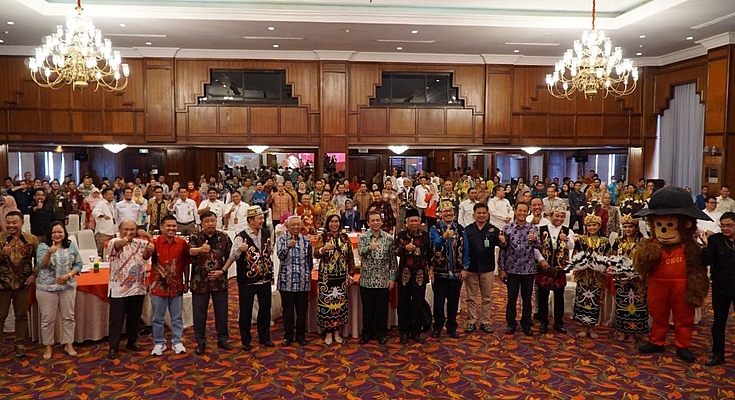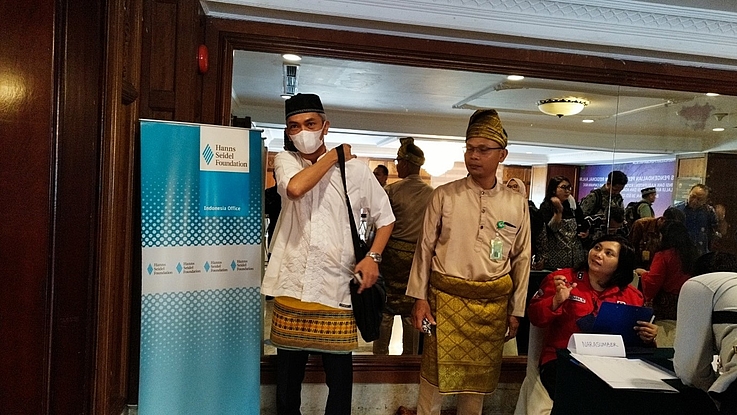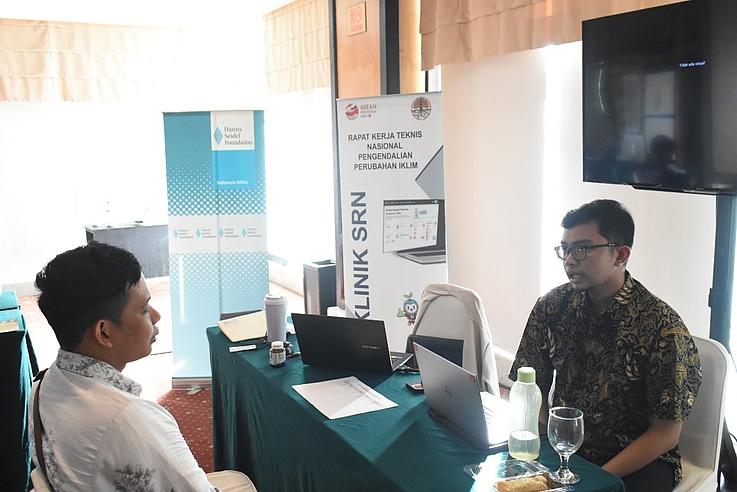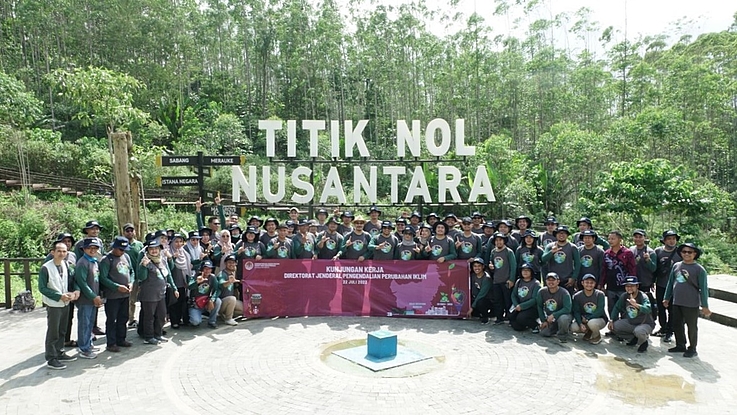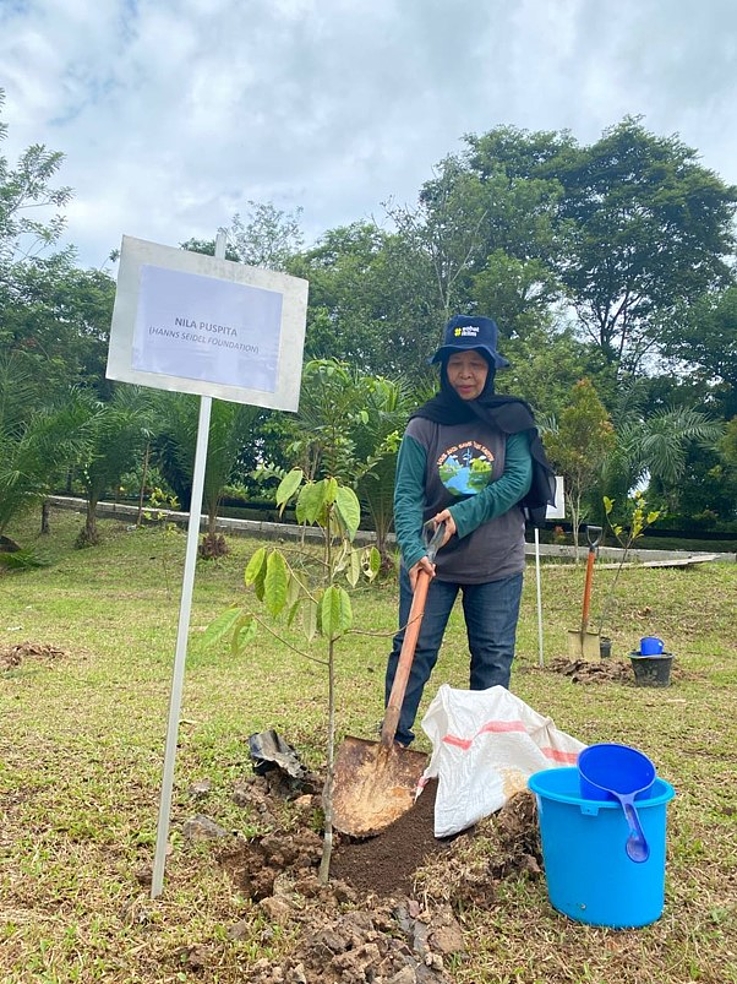Workshop on the Role of Provinces and Districts/Cities in contributing to Nationally Determined Contribution (NDC) in Kalimantan
Contributions to the Indonesian NDC through Mitigation and Adaptation Actions on the local level
Participants demonstrated sustainable greetings
HSF
A total of 186 non-party stakeholders throughout Kalimantan region participated in the three days workshop that was organized in cooperation with the Directorate General of Climate Change Control of the MoEF. The training aimed at (1) Disseminating and discussing the implementation of the Presidential Decree 98 of 2021 and Minister of Environment and Forestry 21 of 2022 related to NEK at the provincial, district/city levels; (2) Discussing the role, commitment and contribution of the Regional Government in controlling climate change and NDC implementation and (3) Increasing regional capacity in compiling and preparing baselines and GHG emission reduction targets at the provincial level.
The workshop was accompanied by information booths of MoEF to provide interactive ways for further discussion and information with person in charge on the following topics of (1) National Registry System (SRN), (2) Simple, Easy, Accurate, Concise and Transparent National Greenhouse Gas Inventory (SIGN SMART), (3) Vulnerability Index Data Information System (SIDIK) and RAD (Regional Adaptation Document), (4) Climate Village Program (Proklim) (5) Carbon Economic Value (NEK) and (6) Results Based Payment (RBP).
Participants got the opportunity to visit the new capital city of Indonesia, IKN Nusantara, to learn about the forest city development concept at IKN Nusantara, ecotourism management and landfills and composting.

